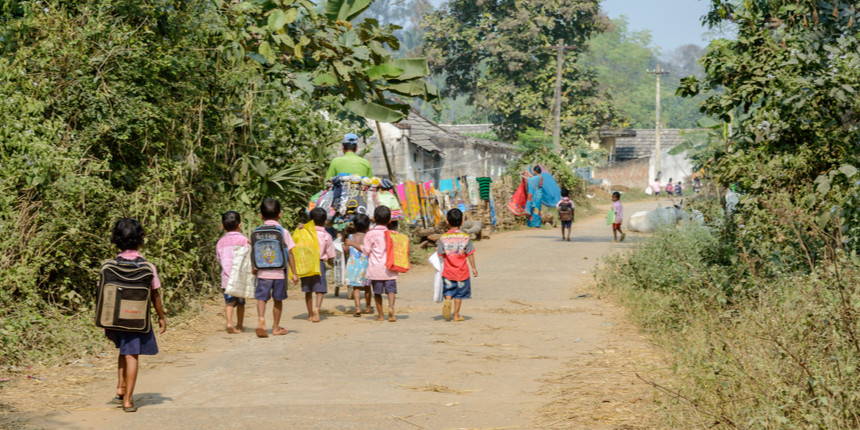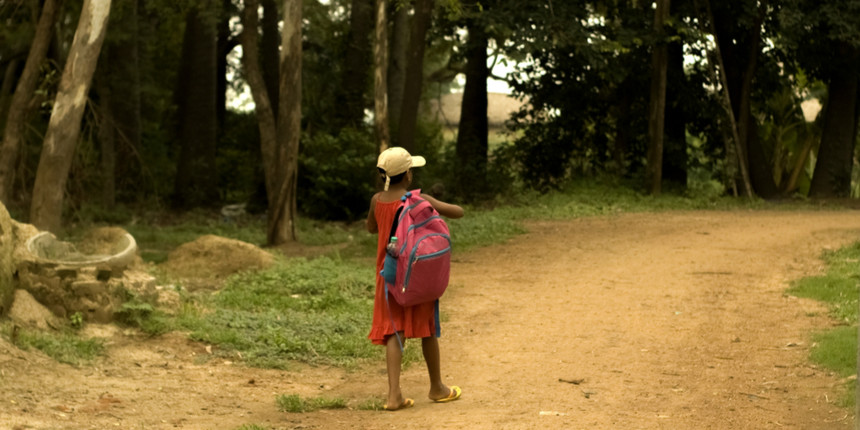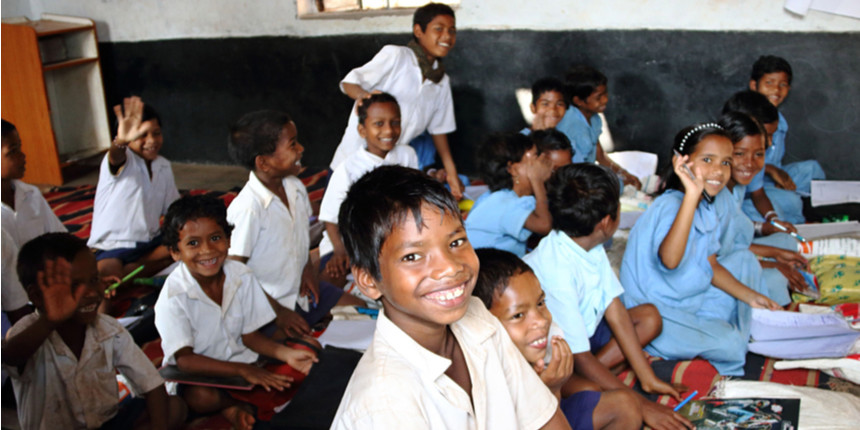Odisha plans to close 7,700 schools but a village is fighting back
Atul Krishna | November 26, 2020 | 09:19 AM IST | 6 mins read

NEW DELHI: Forty-four years ago, the residents of Ramkhol village in Bargarh district of Odisha built a school with mud and straw. The Ramkhol Primary School got its concrete building only after the Right to Education Act 2009 was passed. Now, as part of its larger plan to merge or close over 7,700 government schools, the Odisha government has ordered this school shut and plans to shift its students to another school in Bungapali village.
The residents of Ramkhol are not having it. On November 5, their gram sabha resolved to oppose the plan citing a host of problems villages will face.
Although the village of Bungapali is in the same district, Bangarh, “the path to Bungapali comes inside the Debrigarh Wildlife sanctuary area”, said Ramesh Sahu who works as a consultant to the Azim Premji Policy Initiative. “Moreover, there is no proper road there, just a clearing. Even adults find it dangerous to commute through that area. Boars and elephants are frequently spotted there.”
If the primary school is shut down, its 14 students, aged five to 10, will have to navigate through a dense jungle to reach the Bungapali school, three kilometers away. According to villagers, the path also gets submerged routinely during the monsoon season. They say that the Odisha government officials who had surveyed the spot had been told about these problems.
Odisha, NITI Aayog, school merger
In the year since Odisha joined the Sustainable Action for Transforming Human Capital in Education (SATH-E) project in 2018, over a thousand schools have been shut or “merged” in the state. SATH-E was launched by Centre’s think-tank, NITI Aayog, in collaboration with private consultants and in three states -- Odisha, Madhya Pradesh and Jharkhand.
The SATH-E project’s main focus has been “rationalisation” of schools -- the process of closing schools with low enrolment and shifting their students to other schools. The policy’s advocates argue it allows for better use of teaching and other resources and it has been endorsed by the new National Education Policy (NEP) 2020 as well.
Till 2019, the project has led to the closure of over 40,000 schools in the three states, education minister Ramesh Pokhriyal Nishank told the Parliament on December 2, 2019.
 Picture used for representational purpose only (Source: Shutterstock)
Picture used for representational purpose only (Source: Shutterstock)
However, the plan has met considerable resistance on the ground in Jharkhand and Odisha.
The decision to close is often based on the enrollment figure alone and does not take into account the school or its students’ context. Ramkhol is a case in point.
On Sunday, the Odisha Assembly was adjourned eight times following the motion to discuss the subject of school closures.
Education minister Samir Ranjan Dash told the Assembly that a similar process is being carried out in another 7,772 schools. As per the government order, schools with less than 25 students in non-scheduled areas and less than 20 students in scheduled areas will be shut down or “merged”.
Dash also said that the government will consider the geographical condition of an area while deciding on closing down a school. With the opposition taking up the issue, school closures have become a subject of political contention in Odisha.
No public transport
For the children of Ramkhol village, however, it is a matter of life and death.
Local activists and school management committee members fear it will lead to the Ramkhol children dropping out altogether. The government has promised a one-time financial assistance of Rs 3,000 and an escort allowance of Rs 600 per month for those in need. For Ramkhol, this changes nothing.
Ramkhol and Bungapali fall under the Bargarh district which was second on the list of the most developmentally backward districts in India, also called “aspirational districts”, drawn up by the NITI Aayog.
Ramkhol has no buses or auto rickshaws to connect it to Bungapali. Most villagers rely on bicycles or motorcycles. Moreover, the escort allowance will be disbursed only at the end of the academic year. Until then, parents on daily-wages will foot the bills.
“The younger children, the parents won’t bother with,” said Sahu. “If the children are in Class 4 or 5, parents may provide support. Even then, if parents have to drop off and pick up the child, they may not send them to school. The government is talking about escort fees but it doesn’t make sense because the parents will find it difficult to do this along with their daily wage jobs.”
Parents are already threatening to pull their kids from school. “Those who are doing labour work are saying that they will not [send their child to school],” said Naren who headed Ramkhol Primary’s school management committee. “How can we go through the jungle? My son is nine years old and I will have to manage his education somehow.”
 Children at a school in Bataguda, Odisha (Source: Shutterstock)
Children at a school in Bataguda, Odisha (Source: Shutterstock)
Education department knew
What rankles most is that the education department took the decision despite being aware of Ramkhol’s problems.
“When the department officials came to conduct a survey in 2019, we had informed them about the difficulties we will face if the school were to close down,” said Lakshman Barika, the village sarpanch or head. “We told them about the difficulties of reaching Bungapali. We asked them to at least make the roads better.”
The decision to close the school came as a shock. “We got the information just before the lockdown. The survey report came first. The officials had said that they just came to take a survey and that the school will not be shut. But suddenly after the report came out they said that the school may be shut down,” said Barika.
According to its residents, the village is moving further away from development.
“When the new panchayats were formed in 2018, Ramkhol, which was part of Uttam panchayat, was merged with Bungapali which was more remote,” explained Sahu. “Instead of connecting the village to the more developed areas, the government did the opposite. Villagers complained that their situation was similar to that in the pre-Independence era.”
Losing a school
Ramkhol Primary School was not built by the government but by the villagers 44 years ago, said Bhairabha Patra, a social worker at Ramkhol. “The villagers are asking how the government can suddenly shut down a school that they have built,” said Patra.
Losing a school impacts the entire community and not just the handful of students. “Even those who are illiterate are saying that now no one will marry into the village because of this,” said Sahu who once attended the same school.
Naren added that the villages have approached the district education officer and a member of Odisha’s Legislative Assembly about the school. “The officer said that they will do what they can,” said Naren.
The education minister had also told the assembly that the number of school closures may reduce as the norms have been revised for scheduled areas. With 14 students, the Ramkhol Primary School will shut down regardless as the revised norms require at least 15 students in non-scheduled areas.
Also read:
- Odisha revises norms for merger of schools in KBK region
- NCPCR updates guidelines on protection of street children
Write to us at news@careers360.com.
Follow us for the latest education news on colleges and universities, admission, courses, exams, research, education policies, study abroad and more..
To get in touch, write to us at news@careers360.com.